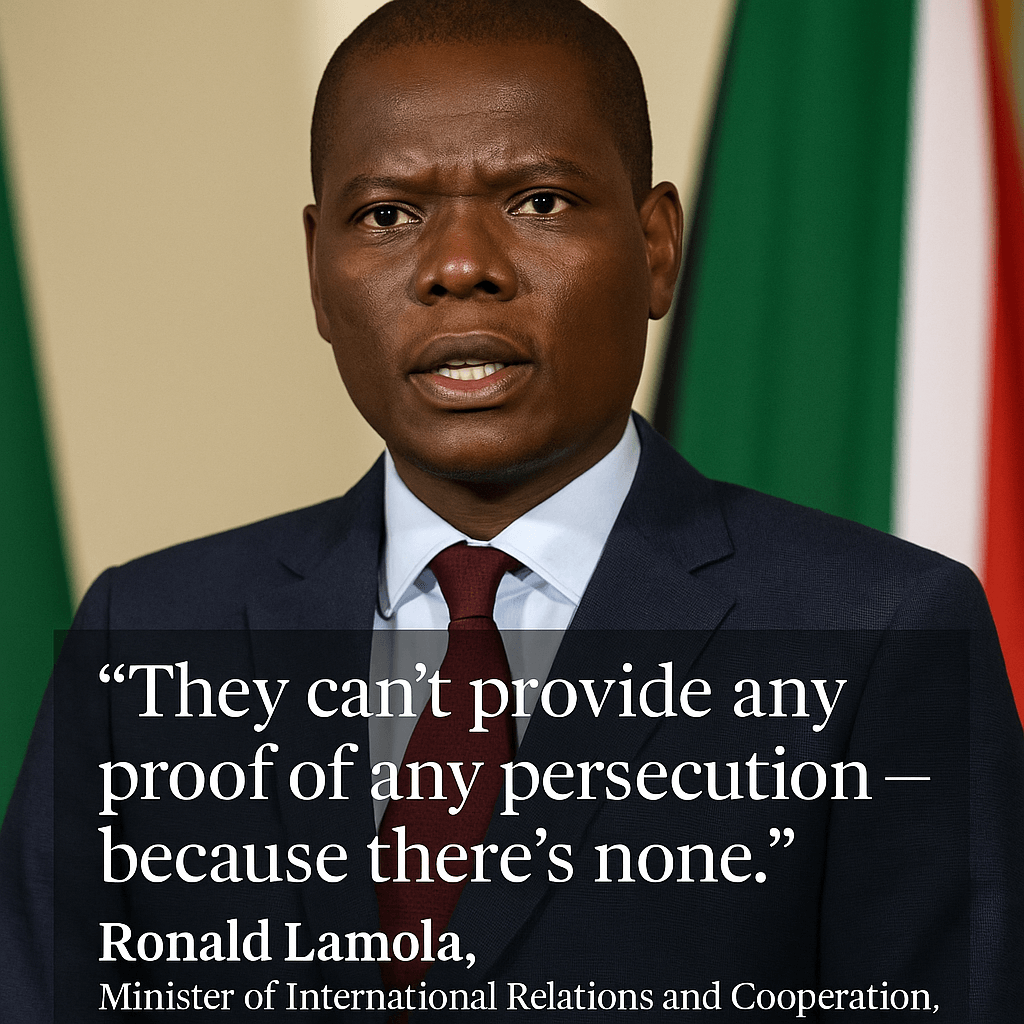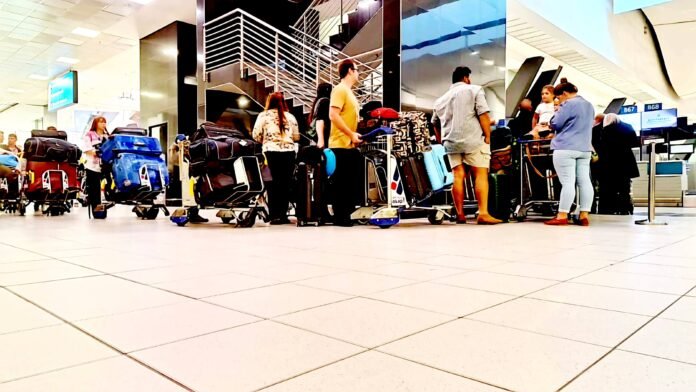JOHANNESBURG / WASHINGTON – A chartered flight carrying 49 white South Africans landed in Washington, DC, on Monday, marking the first wave of Afrikaners accepted under a controversial United States refugee program that Pretoria has outright rejected.
The group departed OR Tambo International Airport on Sunday night and is expected to resettle in Texas under a special provision of US. President Donald Trump’s Executive Order 14204, titled “Addressing Egregious Actions of the Republic of South Africa”, which claims that Afrikaners face race-based persecution and discriminatory land policies.
“They can’t provide any proof of any persecution because there’s none,” South Africa’s Minister of International Relations Ronald Lamola said in a press briefing Monday.
“There’s not any form of persecution to white South Africans or to Afrikaner South Africans.”
The decision has sparked diplomatic tensions and fierce public debate, with Pretoria warning that the individuals may lose their refugee status if they attempt to return.
Who qualifies for the program?
In a notice issued Monday, the US Mission South Africa outlined eligibility for the United States Refugee Admissions Program (USRAP):
- Must be South African nationals,
- Must be of Afrikaner ethnicity or a racial minority in South Africa,
- Must be able to articulate past persecution or a fear of future persecution.
Applicants are required to complete a Statement of Interest form. The US government has warned that using outside agents or paying for assistance is unnecessary and potentially fraudulent.
Reminder: Access to USRAP is free, and all legitimate communication will come from designated U.S. officials.
Fraud or false information can lead to denial of the application.
Pretoria pushes back
South African authorities have been vocal in rejecting claims of targeted racial persecution. Minister Lamola emphasised that SAPS statistics do not support any assertion that white South Africans are persecuted based on race.
“The crime that we have in South Africa affects everyone — irrespective of race and irrespective of gender,” Lamola stated.
“There is a more pronounced crime that we are dealing with, which the president has declared as a pandemic, which is gender-based violence.”

Pretoria has also demanded clarity on how the US intends to uphold the principle of non-refoulement, especially if these citizens later wish to return.
“You really can’t have your cake and eat it,” said Department of International Relations spokesperson Chrispin Phiri.
“You cannot go to the US on migration and economic interest and suddenly decide, ‘I miss South African weather in December…’ and come back. No, it does not work like that.”
“It’s South Africans who have made their own choice … The South African government will apply its mind in regards to that matter.”
– Ronald Lamola
Executive Order fallout
Trump’s executive order claims that South Africa’s land reform policies—specifically property expropriation—amount to racially motivated oppression. He authorised Secretary of State Marco Rubio and Secretary of Homeland Security Kristi Noem to expedite humanitarian relief for Afrikaners.
As reported by the New York Times, over 8,000 requests were received in the early stages of the USRAP rollout, with approximately 100 individuals flagged for fast-tracked consideration.
The program, dubbed “Mission South Africa”, has included on-the-ground US personnel in Pretoria conducting interviews and vetting applicants.
Meanwhile, tensions continue to rise. AfriForum’s engagement with the Trump administration has triggered accusations of political opportunism and treason among some South African lawmakers.
Diplomatic fallout
The South African government has already felt the sting of broader fallout, including sanctions and diplomatic tit-for-tat. The US recently expelled South African Ambassador Ebrahim Rasool, citing inflammatory statements related to Trump’s administration.
In a separate move, the US imposed sanctions and slashed aid, citing South Africa’s land reform policies and its case against Israel at the International Court of Justice.
What happens bext?
With more groups expected to follow, Pretoria faces increasing pressure to respond legally and diplomatically. While Section 20 of the Constitution protects against citizenship loss, cases of misrepresentation or fraud could trigger legal consequences for those who return.
Lamola said the Department of Home Affairs and SAPS have checked departing individuals for criminal records and confirmed that proper procedures were followed. But he added that the US has remained unmoved by Pretoria’s insistence that no persecution exists.
“They say that they have got an executive order that they have to implement,” Lamola said.
“And that according to them, there is persecution.”
As the refugee issue enters the global spotlight, its political, legal, and human ramifications will continue to shape South Africa’s diplomatic and domestic landscape.

